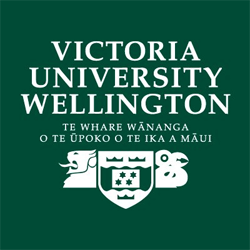
The Success and Impact of Early Career Academics in two New Zealand Tertiary Institutions
Status
Completed: 14 March 2010
Project Details
A project, completed in 2010, to examine the experiences of Early Career Academics (ECAs) and identify the processes that contribute to the induction, preparation and meaningful socialisation of ECAs who will be capable of enhancing their students’ educational outcomes and their own academic careers. A collaboration of Victoria University of Wellington and Eastern Institute of Technology.
Aims:
The aims of the project were to:
- uncover the experiences of early career academics at two New Zealand tertiary institutions
- investigate ECAs’ constructions of success
- identify the influences on and barriers to success for ECAs in New Zealand tertiary institutions
- investigate the potential impact that their success has on the students that they teach and supervise.
Methodology:
The project used a mixed method approach involving:
- a literature review
- a search of both institutions’ personnel data to identify potential participants
- structured interviews with eight academics from each institution
- an online questionnaire about institutional support and personal experience, using a four-point Likert scale, was filled out by participants a few months after the interviews.
The project asked the following research questions:
- What is early career academic success?
- Which factors make it more likely that new academics will or will not be successful?
- What potential impact does ECA success have on students?
Team

Dr Kathryn Sutherland
Project Leader
Victoria University of Wellington
Dr Lesley Petersen
Petersen ConsultingStatus
Funding
$10,000.00 (excl GST)
Key Findings
The key findings from the project included:
- The international literature makes a strong case for success in academia being primarily associated with research: specifically, research output, quality, productivity, and competitive grant funding. There is some mention of student ratings of teaching as an indicator of success, but the clear message from the literature is that successful ECAs are productive researchers, with strong, wide and well-established research networks, a growing reputation or profile in their discipline or community, and a solid record of winning competitive research grants.
- Success in academia depends on a trio of inter-related factors: institutional support, prior experience, and the personal characteristics of the academics themselves. A supportive Head of Department makes a very big difference to an ECA’s chances of success, as do supportive colleagues and a culture of openness and mentoring. The experiences academics have in graduate school, industry and the workforce are important, too, and the mentoring provided by postgraduate supervisors is significant.
- Success in terms of personal characteristics: ECAs are knowledgeable and up-to-date on important new developments; collaborative and have broad networks of support; resourceful in the ways that they seek support, help, advice and guidance; resilient in the face of setbacks and obstacles, rather than being defensive or risk-averse; organisationally aware, astute and committed, as well as collegial and caring (they are good “academic citizens”); self-disciplined; and conscious of balancing work and home life.
- The project identified a number of barriers to ECA success including: a lack of mentoring from senior colleagues, an apathetic Head of Department, poor or non-existent advice about promotion and career planning, and induction processes that lack specificity and timeliness. Also coming under fire were heavy workloads in the first couple of years, unsupportive colleagues, and an inability to balance home and work life.
Key Recommendations
The key recommendations from the project were:
Recommendations for new ECAs: We recommend that ECAs ask themselves a series of questions around the themes of resourcefulness, relationships, resilience, academic citizenship and balance, and we have produced a flyer to help prompt and guide this process.
Recommendations for Institutions: The role of the institution in supporting ECA success is very important, and we encourage Heads of Department, academic developers and others working with new ECAs to consider reviewing their processes and policies around: promotion advice, feedback and support; regular feedback on performance in teaching, research and service; communication between management and academics; opportunities for networking and mentoring; equipment and funding for research and new teaching developments; and opportunities to participate in decision-making processes.
A research report prepared by Kathryn Sutherland and Lesley Petersen.
(PDF, 1.05 MB, 44-pages).
- 20 March 2010
Printable leaflet for early career academics to use for self reflection and planning.
- 20 March 2010